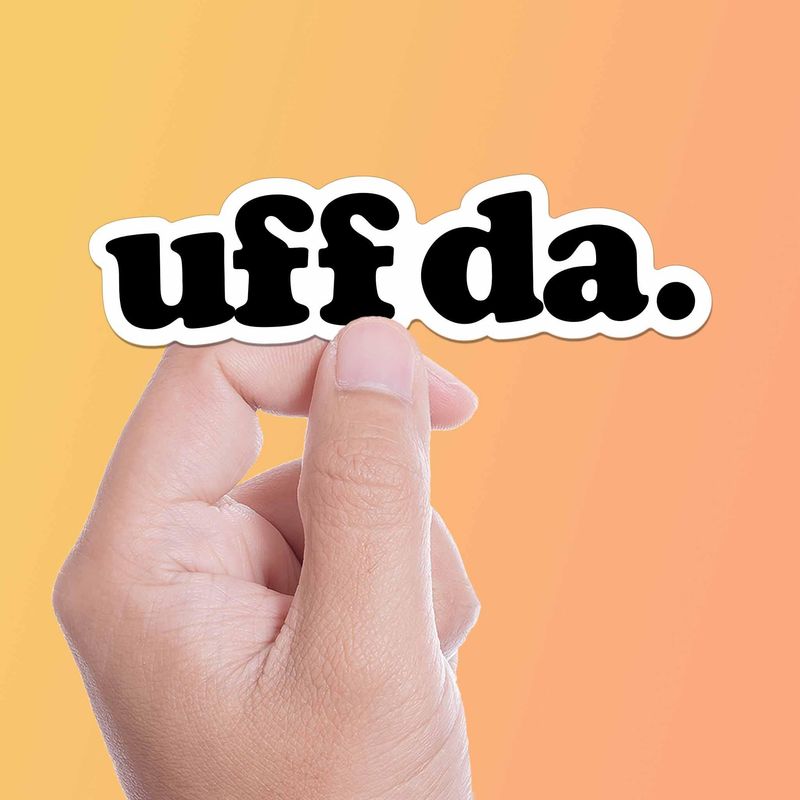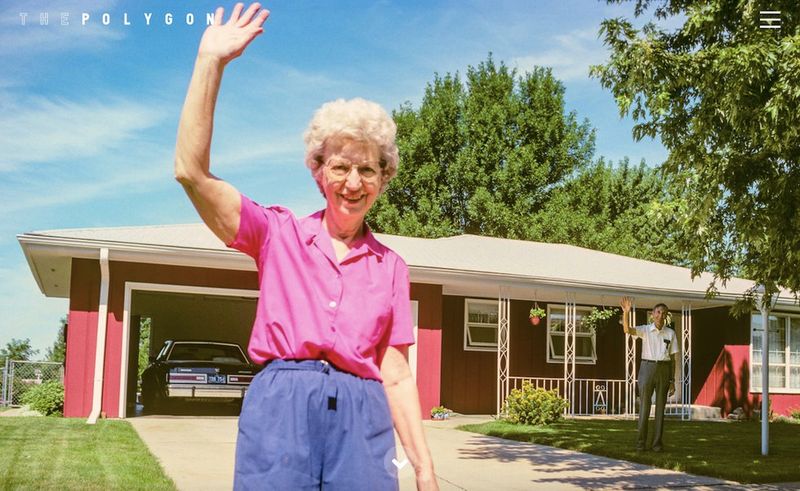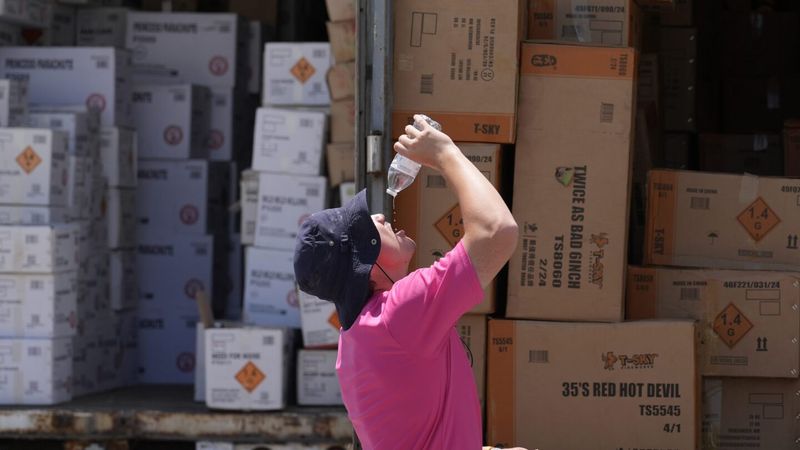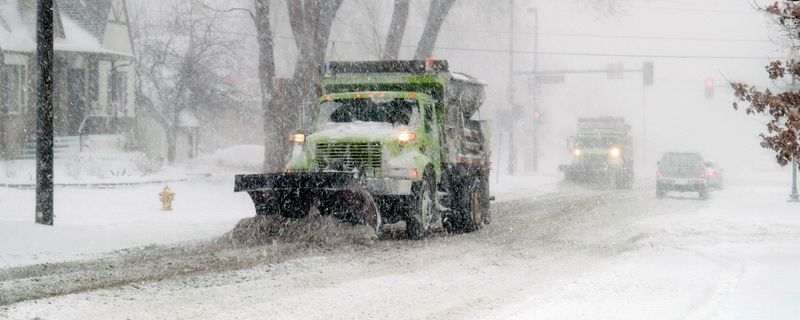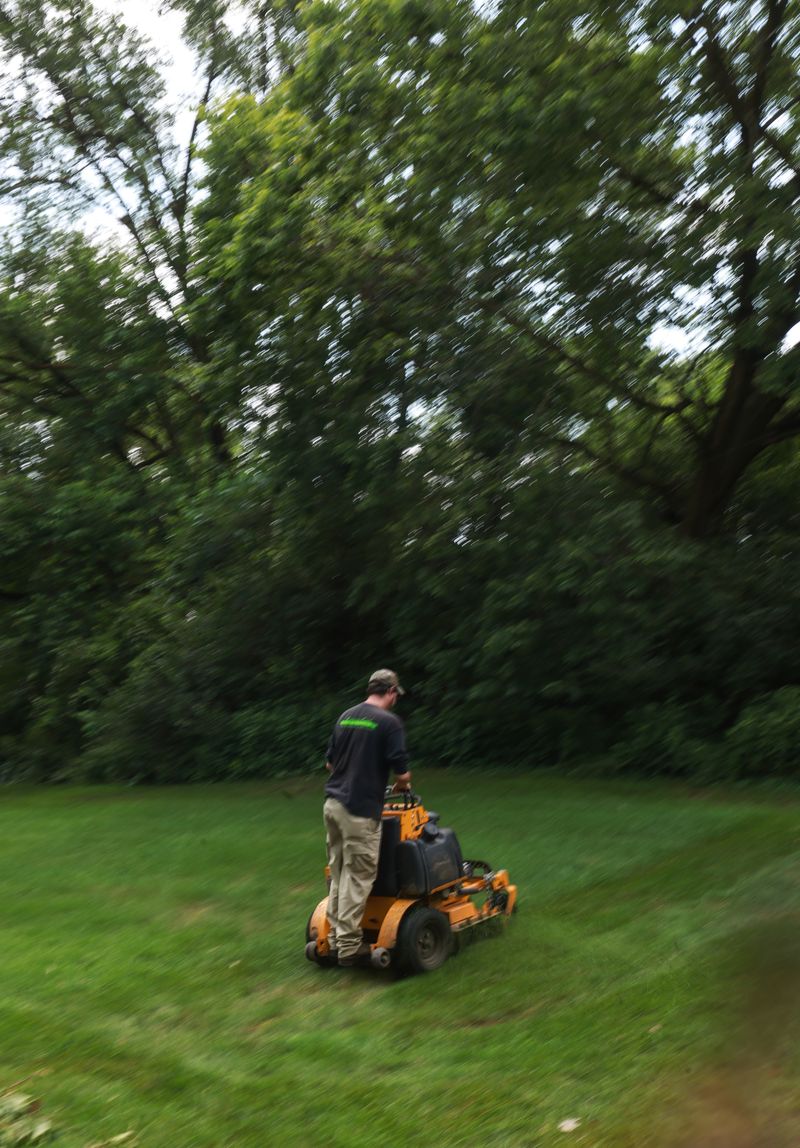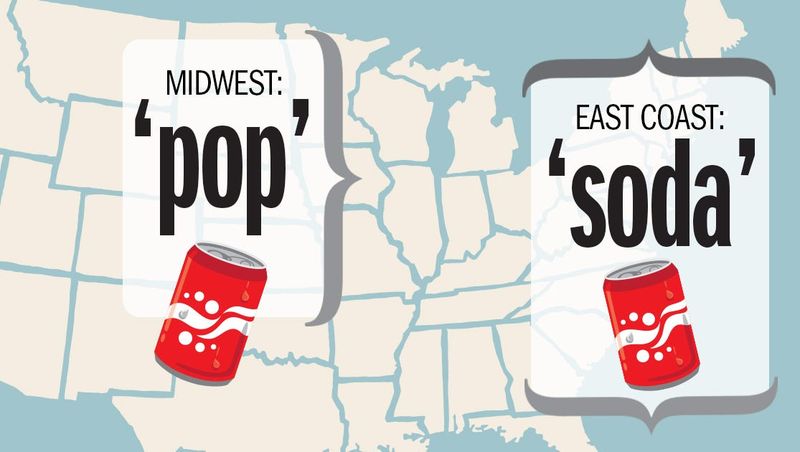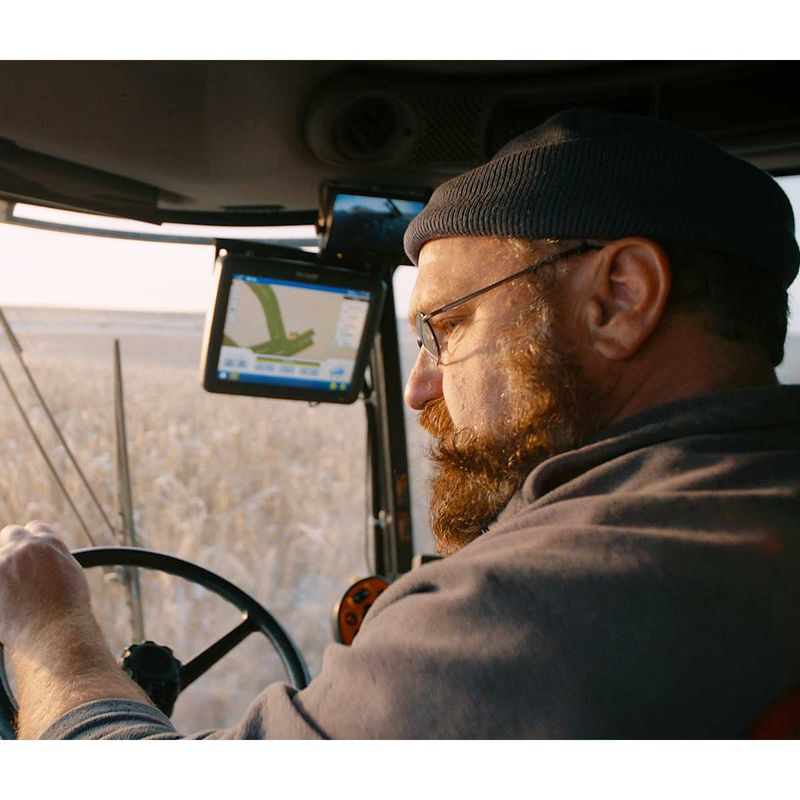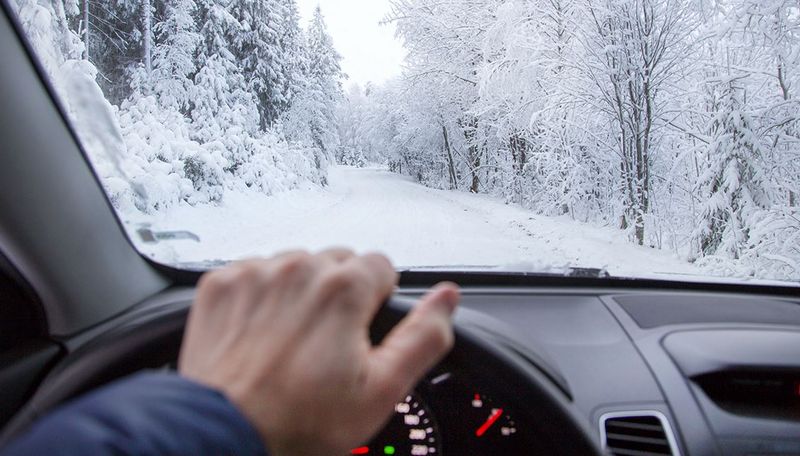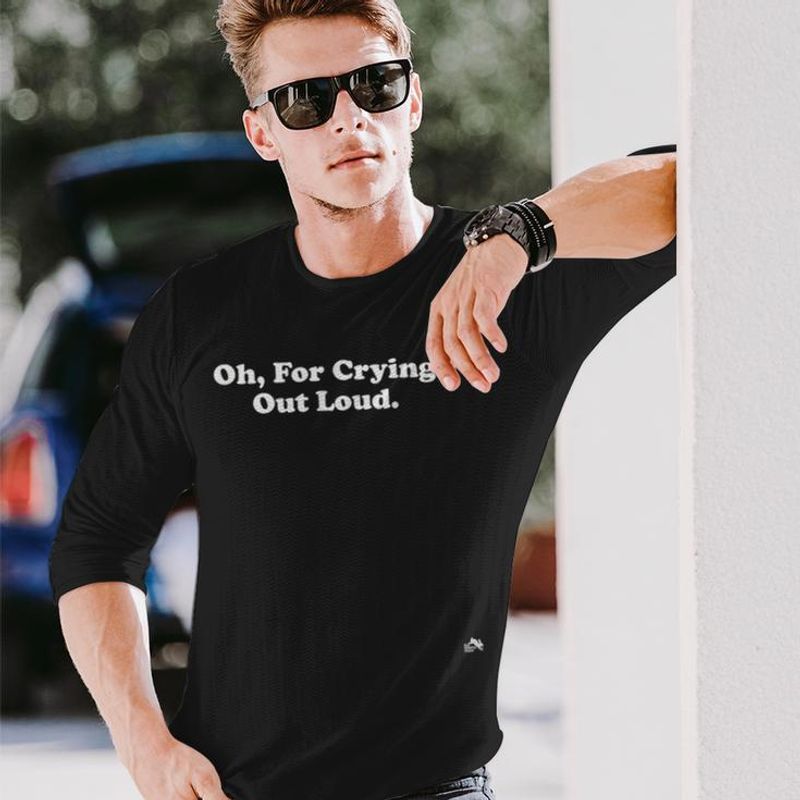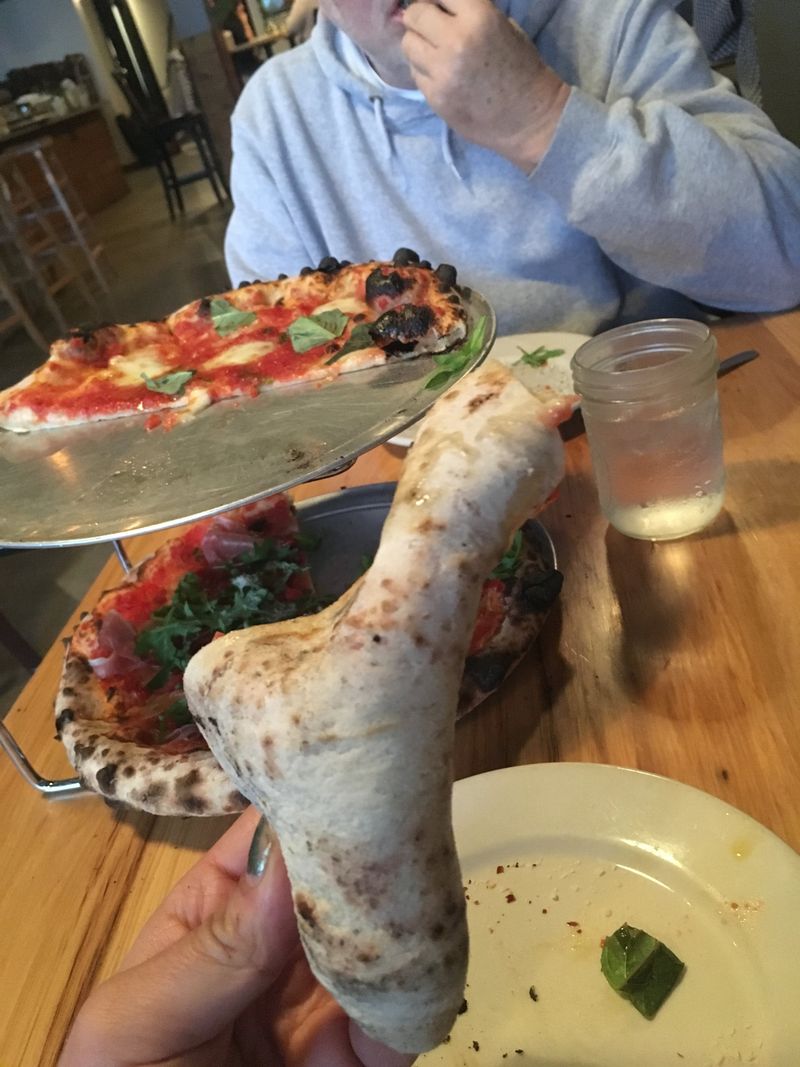If you’ve ever visited America’s heartland, you’ve probably been confused by some of the unique sayings that flow naturally from Midwesterners’ mouths.
These quirky expressions are deeply woven into the cultural fabric of states like Minnesota, Wisconsin, and Michigan.
From the infamous ‘Ope!’ to the mysterious ‘hot dish,’ these phrases showcase the region’s distinctive charm and character.
1. Ope!
This tiny exclamation slips out when Midwesterners bump into someone or drop something. It’s the verbal equivalent of a reflex – completely unconscious yet uniquely regional. The beauty of “ope” lies in its versatility. You might hear “Ope, just gonna squeeze right past ya” at a crowded grocery store or “Ope, sorry” when someone accidentally bumps your shopping cart. Unlike the coastal “excuse me” or southern “pardon,” this little sound serves as both apology and acknowledgment in one efficient syllable. Most Midwesterners don’t even realize they say it until someone from out of state points it out.
2. You betcha!
When enthusiasm meets politeness, “you betcha” emerges as the quintessential Midwestern affirmation. Far more colorful than a simple “yes,” this phrase carries the weight of genuine agreement wrapped in folksy charm. Popularized in movies like “Fargo,” the expression has become something of a regional identifier. A Midwesterner might respond with “you betcha” when asked if they’d like more casserole or if they’re willing to help shovel a neighbor’s driveway. The phrase often comes paired with a cheerful nod and sometimes even a thumbs-up for extra emphasis. It’s positivity in verbal form – something the Midwest has in abundant supply.
3. Don’tcha know.
This isn’t actually a question despite its structure. Tacked onto the end of statements, “don’tcha know” serves as a conversational garnish that adds a distinctly northern Midwestern flavor. The phrase has Norwegian and Swedish roots, echoing the immigrant heritage that shaped states like Minnesota and Wisconsin. When someone says, “It’s gonna snow tomorrow, don’tcha know,” they’re not questioning your meteorological knowledge – they’re simply emphasizing their point with regional flair. What baffles outsiders is the complete lack of response expected after this pseudo-question. It’s the verbal equivalent of a period, signaling the end of a thought rather than inviting confirmation.
4. Uff da.
When words fail, “uff da” steps in. This Norwegian expression found fertile ground in the Upper Midwest, particularly Minnesota, where it’s deployed for everything from minor inconveniences to major disasters. Drop a carton of eggs? “Uff da.” Just heard your cousin’s complicated divorce story? “Uff da.” Watching the Vikings lose another playoff game? Definitely an “uff da” moment. The beauty of this phrase lies in its emotional range. The same two words can convey sympathy, exhaustion, surprise, or dismay depending on tone and context. To coastal ears, it sounds like nonsense, but to Midwesterners, it’s an essential emotional shorthand that saves time on unnecessary elaboration.
5. Hot dish
Never call it a casserole if you’re north of Iowa. “Hot dish” reigns supreme as the preferred term for any combination of protein, starch, and cream-of-something soup baked until bubbly. This culinary cornerstone appears at every church potluck, family gathering, and neighborhood function across the region. Tater tot hot dish might be the most famous variation, featuring ground beef, mixed vegetables, and a crispy potato crown that would mystify coastal gourmands. The confusion deepens when Midwesterners discuss bringing a “hot dish to pass” – meaning it’s intended for sharing, not that you’ll literally pass it around like a basketball. In Minnesota, this humble comfort food is practically the unofficial state dish.
6. Jeet?
Midwestern efficiency reaches its peak with “jeet?” – a compressed version of “did you eat?” that demonstrates the region’s knack for linguistic economy. This verbal shorthand often catches visitors off guard with its abrupt delivery. The question typically comes flying at you the moment you enter a Midwestern home. Before your coat is off, someone’s grandmother is already concerned about the state of your stomach. It’s not just a question but an opening gambit in the hospitality chess game. The only acceptable answers are “no” (which triggers immediate feeding) or “yep, but I could eat again” (also triggering immediate feeding). Claiming fullness is generally interpreted as politeness to be overcome with persistent offers of food.
7. I s’pose.
When enthusiasm is too flashy but rejection too harsh, “I s’pose” offers the perfect middle ground. This noncommittal phrase allows Midwesterners to agree without seeming overly eager – a cardinal virtue in a culture that prizes moderation. The beauty lies in its versatility. “Want to go fishing at 5 AM?” “I s’pose.” “Should we try that new restaurant?” “I s’pose we could.” Each delivery comes with a slight shoulder shrug, communicating willing participation without excessive excitement. To outsiders, this lukewarm response might seem dismissive or unenthusiastic. What they miss is the subtle acceptance embedded within – in Midwestern emotional language, “I s’pose” is actually closer to “yes” than “maybe,” just with the appropriate amount of restraint.
8. We’re gonna head out now.
The Midwestern goodbye is legendary for its length, and “we’re gonna head out now” marks only the beginning of a farewell ritual that can last upwards of 30 minutes. This phrase signals the intent to leave without actually initiating departure. What follows is an elaborate dance: standing up, commenting on the weather, discussing the drive home, reminiscing about previous visits, making future plans, and slowly inching toward the door. Each step comes with its own conversation thread that must be properly exhausted before moving on. The process baffles coastal visitors who expect a goodbye to be swift and final. In the Midwest, however, a proper departure is an event unto itself – a gradual unwinding of hospitality rather than an abrupt severance of connection.
9. Wanna come with?
The dangling preposition in “wanna come with?” makes English teachers cringe but feels perfectly natural to Midwesterners. This truncated invitation omits any object after “with,” leaving non-Midwesterners mentally adding “me” or “us” to complete the thought. The phrase exemplifies the region’s tendency toward linguistic efficiency. Why say four words when three will do? You might hear it when someone’s heading to the store, going fishing, or making a quick run to the local supper club. What’s particularly charming is how the missing word becomes implied through context and tone. Everyone understands exactly what’s being asked despite the grammatical incompleteness. It’s communication streamlined to its essence – direct, simple, and utterly Midwestern.
10. It’s not the heat, it’s the humidity.
This meteorological mantra emerges from Midwestern mouths the moment temperatures climb above 80 degrees. Despite enduring brutal winters, summer heat prompts an entirely different kind of complaint – one focused specifically on air moisture content. The phrase serves as both weather analysis and conversation starter. Two strangers can bond instantly over mutual discomfort, wiping their brows while nodding in solemn agreement about the oppressive dampness. The technical accuracy doesn’t matter; it’s the shared experience that counts. What confuses outsiders is the regional insistence on this distinction. In Phoenix, it’s just hot. In New Orleans, humidity is assumed. But in the Midwest, parsing which atmospheric condition is truly responsible for your discomfort remains an essential summer ritual.
11. Hunker down.
When blizzard warnings appear on the weather radar, Midwesterners don’t panic – they “hunker down.” This practical expression describes the art of preparing for extended home confinement due to extreme weather, particularly during the region’s legendary winters. Hunkering down involves specific preparations: stocking up on milk and bread, charging devices, locating flashlights, and mentally preparing for potential power outages. It’s a state of mind as much as a set of actions – a calm acceptance of nature’s authority coupled with quiet confidence in one’s preparedness. What baffles non-Midwesterners is the almost cheerful resignation that accompanies the phrase. There’s a certain pride in hunkering down properly, as though weathering extreme conditions were a competitive sport at which locals excel.
12. Fixin’ to…
This phrase exists in a curious state of imminent action that never quite materializes immediately. When a Midwesterner is “fixin’ to” do something, they’ve mentally committed to the task but haven’t yet physically begun. The time between declaration and action remains delightfully ambiguous. “I’m fixin’ to mow the lawn” could mean in five minutes or next Tuesday. It’s a commitment to eventual completion rather than immediate execution. What confuses non-locals is trying to plan around these nebulous timeframes. The phrase occupies a middle ground between intention and action that defies precise scheduling. It’s less about procrastination and more about maintaining flexibility – a verbal placeholder that acknowledges a task without boxing oneself into a rigid timeline.
13. I’ll have a pop.
The carbonated beverage debate reveals deep regional divisions in American English, and Midwesterners plant their flag firmly in “pop” territory. This one-syllable word becomes an immediate identifier of Midwestern origins when uttered in other regions. Order a “pop” in New York or Los Angeles, and you’ll receive confused looks followed by dawning recognition of your geographical roots. The term dominates throughout Michigan, Wisconsin, Minnesota, and parts of Ohio, creating a distinct soda-pop dividing line on dialect maps. What’s particularly charming is how stubbornly Midwesterners cling to their terminology even after moving elsewhere. A transplanted Chicagoan might live in Atlanta for decades yet never fully convert to saying “Coke” for all carbonated beverages – some linguistic loyalties run too deep.
14. I might’ve had a few too many Old Fashioneds.
This polite admission of overindulgence showcases the Midwestern talent for understatement. Rather than acknowledging outright drunkenness, this euphemistic phrase softens the impact while still communicating the essential information. The Old Fashioned cocktail itself holds special status across Wisconsin and neighboring states, where the brandy version reigns supreme. Friday night fish fries and supper clubs serve these sweet, potent drinks by the thousands, making them the region’s unofficial cocktail. What puzzles outsiders is the careful verbal dancing around inebriation. The phrase acknowledges excess while maintaining propriety – a linguistic balancing act that reflects broader cultural values. It’s not about denying reality but framing it in the most socially acceptable way possible.
15. Could be worse.
This phrase embodies the stoic optimism that defines the Midwestern spirit. Uttered in response to everything from minor inconveniences to legitimate disasters, it reflects a cultural commitment to emotional restraint and perspective maintenance. Tornado destroyed your barn? “Could be worse.” Car won’t start in minus-twenty weather? “Could be worse.” The phrase functions as both acknowledgment of hardship and refusal to indulge in excessive complaint. What confuses coastal visitors is mistaking this for indifference or denial. In reality, it’s a practical philosophy built on generations of agricultural uncertainty and extreme weather. Midwesterners aren’t ignoring problems – they’re contextualizing them within a broader understanding that suffering is universal but survivable with the right attitude.
16. Go around the block a few times, see if she warms up.
This automotive advice emerges during brutal winter months when vehicles protest against functioning in sub-zero temperatures. The phrase reflects both practical problem-solving and the tendency to anthropomorphize cars as temperamental beings requiring patience. The ritual involves coaxing a reluctant engine to life, then driving aimlessly around neighborhood streets until the vehicle grudgingly begins operating normally. No scientific explanation needed – just folk wisdom passed through generations of cold-weather drivers. What mystifies visitors from warmer climates is both the casual acceptance of automotive struggle and the personification of machines. The gendered pronoun for cars persists strongly in the region, with vehicles consistently referred to as “she” regardless of make or model – a linguistic quirk that adds character to mechanical relationships.
17. For cute!
This exclamation of delight springs from Midwestern mouths when encountering anything adorable – particularly babies, puppies, or miniature versions of ordinary objects. The phrase adds “for” before an adjective, creating a construction that baffles linguistic outsiders. You might hear “Oh! For cute!” when showing photos of grandchildren or displaying a tiny succulent plant in a decorative pot. The expression comes with raised eyebrows, higher pitch, and sometimes a hand pressed against the chest for emphasis. Similar constructions include “for fun” and “for sure,” following the same pattern of preposition-plus-adjective that creates distinctly regional speech patterns. The origin remains mysterious, but linguistic experts suspect Scandinavian influence, particularly from Norwegian sentence structures that made their way into Upper Midwest dialects.
18. Oh fer cryin’ out loud!
This mild exclamation of frustration provides Midwesterners with an outlet for annoyance without resorting to actual profanity. It’s the verbal equivalent of rolling your eyes – expressing irritation while maintaining family-friendly language. The phrase typically emerges when dealing with minor setbacks: dropped groceries, technology failures, or children tracking mud across clean floors. The “fer” pronunciation (rather than “for”) is essential to its authentic delivery, demonstrating the region’s tendency to soften certain consonants. What amuses outsiders is the old-fashioned quality of the expression, which sounds like something from a 1950s sitcom. Yet it persists across generations, with teenagers unconsciously adopting their grandparents’ language patterns. The phrase creates a uniquely Midwestern way to express irritation without causing offense.
19. That’s different.
This seemingly innocent observation serves as the Midwestern equivalent of a scathing critique. When someone describes something as “different,” they’re deploying a masterclass in passive-aggressive communication that outsiders often miss entirely. The phrase appears when confronted with unusual food, questionable fashion choices, or unconventional life decisions. The genius lies in its plausible deniability – technically, it’s merely a neutral observation that something deviates from the norm. The slightly prolonged pronunciation of “different” and meaningful pause afterward carry the actual judgment. What confuses non-Midwesterners is the gap between what’s said and what’s meant. In a culture that prizes politeness and conflict avoidance, direct criticism becomes coded in seemingly innocuous observations. It’s not what you say but how you say it that communicates your true assessment.
20. Well, that’s interesting.
This versatile phrase serves as the ultimate conversation deflector when Midwesterners encounter something they find objectionable but are too polite to criticize directly. The slight emphasis on “interesting” transforms a neutral observation into subtle disapproval. You might hear it after someone shares controversial political views, describes an unusual parenting technique, or reveals an unexpected life choice. The beauty lies in its perfect deniability – if challenged, the speaker can claim genuine interest rather than judgment. What perplexes non-Midwesterners is decoding these subtle linguistic cues. In regions where communication tends toward directness, these layered meanings create confusion. It’s a masterful example of how Midwestern culture has developed vocabulary that allows for both social harmony and honest reaction – just expressed through carefully calibrated understatement.




